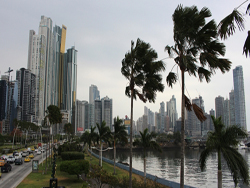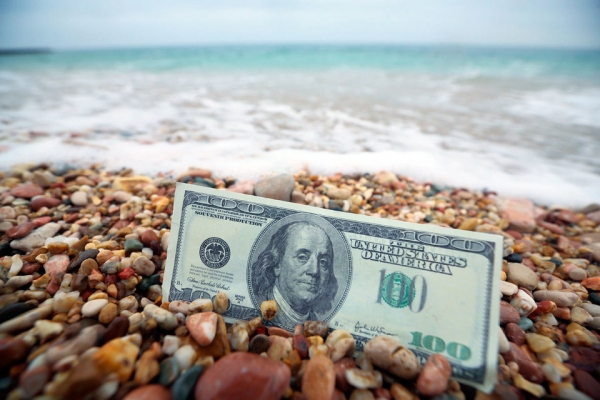
Loud journalistic investigation will add arguments to the critics of offshore companies, but will not reduce the demand for their services.
The international consortium of investigative journalist (ICIJ) published a sensational data about the abuse of offshore companies who have made public figures, including political figures from many countries. Most of the published information has no evidentiary power to draw definitive conclusions, however, it became property of broad masses and will have a major impact on public opinion. It will have an impact on the operation of firms providing offshore services.
Attitude to offshore companies is largely a question about limits, about what is and what is not. From childhood dreams of instant enrichment to inspire us to search for alien treasure. As you know, the pirates in the books, there are bad and good. And this determines, for example, the English privateer king of your diploma, which allows repair robbery and crimes against enemies of the crown. No wonder offshore as a phenomenon originated in the British possessions.
Gradually, the Empire collapsed. And some former colonies surpassed the mother country on all fronts. But the principle of “me and other” lives and thrives simultaneously with slogans about the need for fair and transparent international relations. It is noteworthy that the main front against politicians abuse offshore tax evasion, and the public resonant leaks reveal the abuse themselves “wrestlers”.
The beginning of a global campaign against tax havens can be attributed to may 2013, when this initiative was made by the U.S. President and Prime Minister of great Britain. As stated by the then British Prime Minister David Cameron: “We should know who really owns the company, who is enriched at their expense, and whether the taxes are paid. And we need a new mechanism to identify where transnational groups earn money and where they pay their taxes, so we can prevent those who manipulate the system in bad faith”.
Since then, much has happened.
The United States received access to banking secrecy in many States through agreement on FATCA.
The European Union launched among the member States automatic exchange of tax information. Switzerland introduced the concept of a qualified tax evasion, and changed the concept of the Institute of “banking secrecy”. At the international level the OECD, with the support of the G20, issued podrobneishim against erosion of the tax base on profit and transfer it in a convenient jurisdiction (BEPS).
However, fiscal selfishness, it is the desire of any state to attract more taxpayers, hinders such initiatives. Now in the U.S. Congress, a growing number of dissatisfied with the OECD recommendations, critics point to their unfair nature. Because under existing rules, the offshore profits of American corporations that are targeting a number of European countries, are not subject to American taxes until the moment they return home.
Of course, the right to levy taxes on their territory is an integral part of state sovereignty, on which no one has the right to claim that is the main problem in the field of tax integration policy in the European Union.
Fiscal sovereignty together with selfishness, formally based on national interests, gives rise to another phenomenon known as tax competition, when in the pursuit of increased tax revenues, States create such a tax system, the parameters of which divert capital from other countries. It is clear that the investment attractiveness depends not only on parameters, but primarily on the application and the actual implementation.
Russia also tries to use international information about to improve their fiscal performance, particularly after the introduction of the Tax code of the rules of taxation of controlled foreign companies, however, its future in the emerging realities is not entirely clear because of the publicly known geopolitical events and, in particular, in connection with the annexation of Crimea.
Thus, in view of the emerging new system of international relations, one should not expect a breakthrough in the fight against tax allonisos because they rather “every man for himself” than fairly ready to sacrifice their wealth for the prosperity of the other.
It is not known why the leak happened in Panama, the global center for mass production of legal entities with the highest degree of confidentiality. It is known that Panama is a zone of US influence, why recently, the government even said not going to join the new initiative on automatic exchange of tax information.
As it turned out, the population is not so interested in the fight against tax evasion, which does not bring any tangible social benefits for ordinary people, for example, will not increase pension. And, here, the appearance of any information about violations by the authorities of the law and ethical standards, bearing in mind that they must ensure the rule of law in their country, and to be an example of honesty, is precisely what is so necessary to the common man, which was less eat, sleep, and more to find a job in the current economic environment.
As for offshore zones, their future is clear: they’re not going anywhere. Demand creates supply.
Now, however, companies-providers of offshore services are not only more selective in choosing clients, but also, of course, in ensuring the safety of sensitive information. It should be understood that the ICIJ investigation largely reflects the realities of yesterday. The practice of offshore industry has changed dramatically in recent years, due to new requirements to combat money laundering and identification of beneficiaries. Therefore, in most tax haven jurisdictions abolished the use of bearer shares. There remains, of course, the biggest risk when a customer intentionally enters lawyers, auditors and banks in the confusion, posing as the real owner of the company, although acting in the interests of third parties. But it is a question not to the offshore industry.








